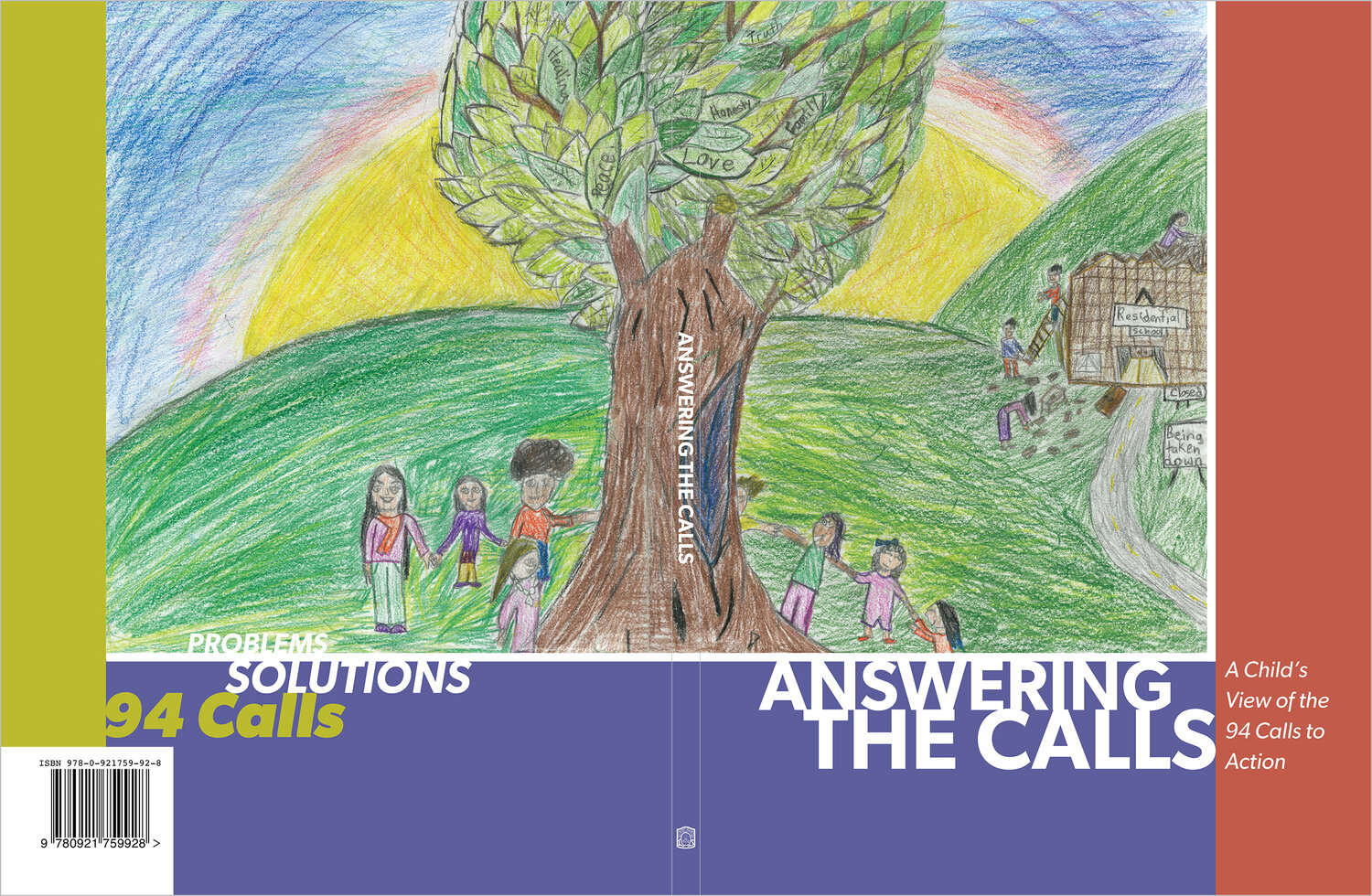
Explore and honour the Truth and Reconciliation Commission’s 94 Calls to Action using learner-friendly language.
A school-based project had learners in Grades 4 to 6 create a version of the Truth and Reconciliation Commission’s 94 Calls to Action that is child-friendly in its language and understandable for younger readers. The learners used a process where they blacked out all the extraneous words and those they did not understand. They circled other words, asked questions, researched, interviewed people, asked more questions, and did more research. Teachers modelled strategies and guided learners in finding and using relevant and reliable sources while considering bias and reliability. Learners engaged deeply in this research, broadening their understanding of the key ideas of many of the Calls to Action.
As the learners shared their findings and understanding through drawings, written responses, poems, and translations of the Calls to Action, they explained the meaning and significance of each Call to Action in language accessible to younger readers. They offered their perspective and suggestions for solutions to issues and challenges while considering all the information and evidence they had gathered. As they reflected, they also made decisions regarding how they, as individuals, would strive to take action to advance reconciliation and contribute to the betterment of community.
Their work was later published as a book entitled Answering the Calls: A Child’s View of the 94 Calls to Action and distributed throughout their school division (Winnipeg School Division) and beyond, so that other learners could read and learn about the Calls to Action through the eyes of a child.
Answering the Calls: A Child’s View of the 94 Calls to Action. Edited by Rhona Churman, Jackie Cleave, Chantelle Brown Cotton, Jilll Joanette, and Stefanie Jones. Kirk Warren Studio, 2019.
More information available at www.commonword.ca/ResourceView/82/21737.